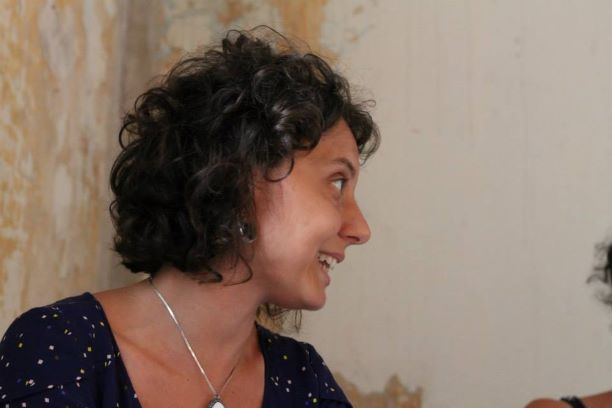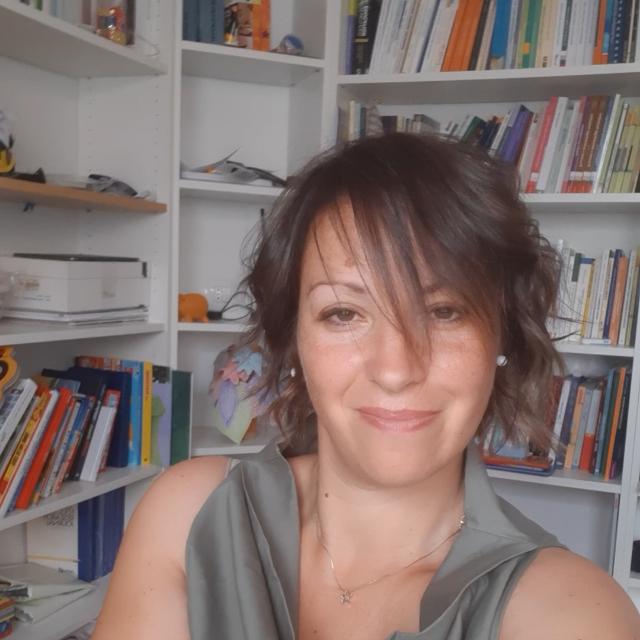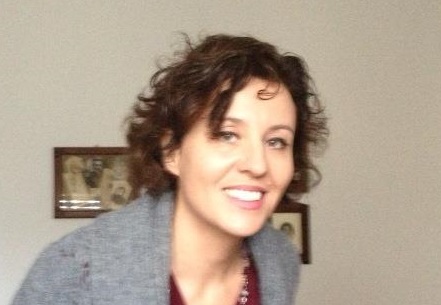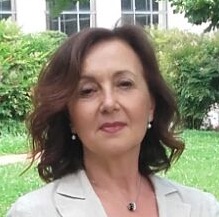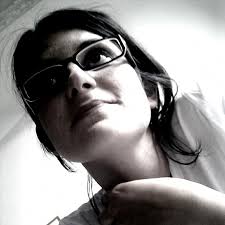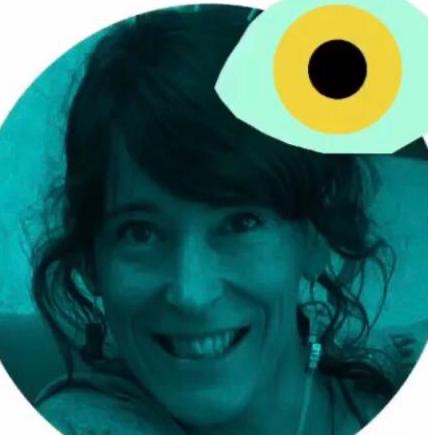Studying at the University of Verona
Here you can find information on the organisational aspects of the Programme, lecture timetables, learning activities and useful contact details for your time at the University, from enrolment to graduation.
Academic calendar
The academic calendar shows the deadlines and scheduled events that are relevant to students, teaching and technical-administrative staff of the University. Public holidays and University closures are also indicated. The academic year normally begins on 1 October each year and ends on 30 September of the following year.
Course calendar
The Academic Calendar sets out the degree programme lecture and exam timetables, as well as the relevant university closure dates..
| Period | From | To |
|---|---|---|
| Sem. 1A | Sep 21, 2020 | Oct 31, 2020 |
| Sem. 1B | Nov 9, 2020 | Jan 9, 2021 |
| Sem. 2A | Feb 15, 2021 | Apr 1, 2021 |
| Sem. 2B | Apr 14, 2021 | May 29, 2021 |
| Session | From | To |
|---|---|---|
| Sessione d'esame invernale | Jan 14, 2021 | Feb 13, 2021 |
| Sessione d'esame estiva | Jun 7, 2021 | Jul 24, 2021 |
| Sessione d'esame autunnale | Aug 23, 2021 | Sep 18, 2021 |
| Session | From | To |
|---|---|---|
| Sessione di laurea estiva | Jul 5, 2021 | Jul 10, 2021 |
| Sessione di laurea autunnale | Nov 8, 2021 | Nov 13, 2021 |
| Sessione di laurea invernale | Mar 28, 2022 | Apr 1, 2022 |
| Period | From | To |
|---|---|---|
| Festa di Ognissanti | Nov 1, 2020 | Nov 1, 2020 |
| Festa dell'Immacolata | Dec 8, 2020 | Dec 8, 2020 |
| Vacanze di Natale | Dec 24, 2020 | Jan 6, 2021 |
| Vacanze di Pasqua | Apr 2, 2021 | Apr 6, 2021 |
| Festa della liberazione | Apr 25, 2021 | Apr 25, 2021 |
| Festa del lavoro | May 1, 2021 | May 1, 2021 |
| Festa del Santo Patrono | May 21, 2021 | May 21, 2021 |
| Festa della Repubblica | Jun 2, 2021 | Jun 2, 2021 |
| Vacanze estive | Aug 9, 2021 | Aug 15, 2021 |
Exam calendar
Exam dates and rounds are managed by the relevant Humanistic Studies Teaching and Student Services Unit.
To view all the exam sessions available, please use the Exam dashboard on ESSE3.
If you forgot your login details or have problems logging in, please contact the relevant IT HelpDesk, or check the login details recovery web page.
Should you have any doubts or questions, please check the Enrollment FAQs
Academic staff
 marialivia.alga@univr.it
marialivia.alga@univr.it
 erika.branchini@univr.it; erika.branchini@gmail.com
erika.branchini@univr.it; erika.branchini@gmail.com
 simona.carta@univr.it
simona.carta@univr.it
 marialuisa.costantino@univr.it
marialuisa.costantino@univr.it
 donato.desilvestri@univr.it
donato.desilvestri@univr.it
 laura.fontecedro@univr.it
laura.fontecedro@univr.it
Ganzerla Luca Giovanni Michelangelo
 lucagiovanni.ganzerla@univr.it
lucagiovanni.ganzerla@univr.it
 licia.landi@univr.it
licia.landi@univr.it

Migliorati Lorenzo
 lorenzo.migliorati@univr.it
lorenzo.migliorati@univr.it
 045802 8135
045802 8135
 maria.mori@univr.it
maria.mori@univr.it
 luca.odini@univr.it
luca.odini@univr.it
 alessandro.ongaro@univr.it
alessandro.ongaro@univr.it
 pieralberto.porcedducilione@univr.it; pierre_pordd@yahoo.it
pieralberto.porcedducilione@univr.it; pierre_pordd@yahoo.it
 045 8028732
045 8028732
 sara.riggio@gmail.com
sara.riggio@gmail.com
 mirela.tingire@univr.it
mirela.tingire@univr.it
 rosanna.vit@univr.it
rosanna.vit@univr.it
 barbara.zoccatelli@unitn.it
barbara.zoccatelli@unitn.it
Study Plan
The Study Plan includes all modules, teaching and learning activities that each student will need to undertake during their time at the University.
Please select your Study Plan based on your enrollment year.
1° Year
| Modules | Credits | TAF | SSD |
|---|
2° Year activated in the A.Y. 2021/2022
| Modules | Credits | TAF | SSD |
|---|
3° Year activated in the A.Y. 2022/2023
| Modules | Credits | TAF | SSD |
|---|
| Modules | Credits | TAF | SSD |
|---|
| Modules | Credits | TAF | SSD |
|---|
| Modules | Credits | TAF | SSD |
|---|
| Modules | Credits | TAF | SSD |
|---|
Legend | Type of training activity (TTA)
TAF (Type of Educational Activity) All courses and activities are classified into different types of educational activities, indicated by a letter.
Problems and Theories of Philosophy (2020/2021)
Teaching code
4S008119
Teacher
Coordinator
Credits
9
Language
Italian
Scientific Disciplinary Sector (SSD)
M-FIL/06 - HISTORY OF PHILOSOPHY
Period
Sem. 2A, Sem. 2B
Learning outcomes
Knowledge and understanding At the end of the course students will be able to demonstrate the attainment of the following learning objectives: 1. knowledge and understanding of the main philosophical problems relevant to educational practice and of the related theories developed over the course of Western thought; 2. knowledge and understanding of the different methodologies available in the philosophical field, their theoretical implications and educational consequences; 3. Knowledge and understanding of the philosophical lexicon and its significance for the development of a technical terminology in the pedagogical field as well. Applying knowledge and understanding At the end of the course students will be able to demonstrate the attainment of the following learning objectives: 1. applying knowledge and understanding to possible scenarios taken from concrete educational activity; 2. applying knowledge and understanding to the reflection on situations in which the dignity of the person and crucial ethical issues determine the pedagogical practice; 3. applying knowledge and understanding to the identification and autonomous analysis of key concepts at the boundary between philosophy and pedagogy; 4. Development of a critical and independent attitude in approaching texts, authors, contexts and problems.
Program
The aim of the course is to provide the students with a selective but wide and thoroughly studied reconstruction of the history of philosophy starting with its origin in Greece and with the more general question of the very origin of culture from experiences of mediation. In such a way the history of philosophy may become an invitation to reflect upon the question of education in all its historical and anthropological scope. After presenting some of the more important pre-Socratics (Thales, Anaximander, Heraclitus) and the thinking of Socrates and Plato, the course touches the Hebraic and Christian mediation, the general characters of the middle ages, the Renaissance, the essential features of modernity with Descartes and of the contemporary philosophy in some thinkers particularly representative; Nietzsche, Bataille, Weil.
NOTE: for the students not attending lecture the professor is available to upload information material and texts on the platform ZOOM, besides single lectures on subjects particularly meaningful or complex (always on ZOOM).
| Author | Title | Publishing house | Year | ISBN | Notes |
|---|---|---|---|---|---|
| Giuseppe Fornari | Alle origini dell'Occidente. Preistoria, antica Grecia, modernità (Edizione 2) | Mimesis | 2021 | Il nuovo testo uscirà quest'estate. Le parti da portare sono: Prefazione - Introduzione gnoseologico - cap. 1 - cap. 2, paragrafi 1, 2, 3 e 5 - Conclusione. Gli studenti che si devono preparare per gli appelli di giugno e luglio possono portare il vecchio testo Mito, tragedia, filosofia (Studium). Parti da portare: Prefazione - cap. 1 (Introduzione gnoseologica) - cap. 2 - cap. 3, paragrafi 1, 2, 3 e 5 - Conclusione. Mi scuso per il disagio ma la lavorazione del nuovo libro è stata lunga e complessa. Il nuovo testo sarà utile dall'appello di luglio in poi. | |
| Simone Weil | Attesa di Dio | Adelphi | 2008 | La parte che bisogna studiare va da p. 99 a p. 201. La lettura completa del volume è consigliata a chi volesse approfondire. L'edizione qui scelta è la più recente e aggiornata, ma per chi l'avesse già può andare anche la precedente edizione pubblicata da Rusconi. | |
| René Descartes | Discorso sul metodo | Laterza | |||
| Giuseppe Fornari | Eraclito: la luce dell'Oscuro (Edizione 2) | Olschki | 2017 | Le parti da studiare sono: Introduzione - traduzione dei frammenti - saggio Il sacrificio in Eraclito. | |
| Platone | Fedro | Arnoldo Mondadori | |||
| Georges Bataille | Il colpevole | Dedalo | 2021 | ||
| Friedrich Nietzsche | La gaia scienza | Adelphi |
Examination Methods
The exam is oral and consists of a reasoned dialogue between professor and student on the topics explained and studied in the course.
Type D and Type F activities
Modules not yet included
Career prospects
Module/Programme news
News for students
There you will find information, resources and services useful during your time at the University (Student’s exam record, your study plan on ESSE3, Distance Learning courses, university email account, office forms, administrative procedures, etc.). You can log into MyUnivr with your GIA login details: only in this way will you be able to receive notification of all the notices from your teachers and your secretariat via email and soon also via the Univr app.
Graduation
Documents
| Title | Info File |
|---|---|
|
|
pdf, it, 99 KB, 13/10/23 |
|
|
pdf, it, 101 KB, 10/04/24 |
List of theses and work experience proposals
| theses proposals | Research area |
|---|---|
| Ambienti e contesti di lavoro con minori | Various topics |
| Analisi dei personal network di sostegno | Various topics |
| comunicazioni relative alla tesi | Various topics |
| Il teatro come contesto educativo | Various topics |
| I processi di globalizzazione culturale nella società contemporanea | Various topics |
| La social network analysis applicata allo studio dei contesti educativi | Various topics |
| L'educatore ed i progetti europei | Various topics |
| L'impegno associativo in ambito educativo | Various topics |
| Politiche sociali e contesti educativi | Various topics |
| Progetti di collaborazione con le istituzioni scolastiche | Various topics |
| PROPOSTE TESI AMBITO GEOGRAFICO | Various topics |
| Scuola e capitale sociale | Various topics |
Linguistic training CLA
Gestione carriere
Student mentoring
Practical information for students
Documents
| Title | Info File |
|---|---|
|
|
pdf, it, 325 KB, 02/05/23 |
|
|
pdf, it, 212 KB, 02/05/23 |
|
|
pdf, it, 131 KB, 02/05/23 |
Stage e Tirocini
Le ulteriori attività formative (crediti F) sono interamente coperte dall’attività di tirocinio “indiretto” (1 cfu) da svolgersi nel secondo anno e di tirocinio “diretto” (14 cfu) da svolgersi presso enti convenzionati per un numero complessivo di 15 cfu (375 ore). Chi è iscritta/o al curriculum servizi per l’infanzia è tenuta/o a svolgere il tirocinio presso nidi e servizi per la prima infanzia per almeno il 50% delle ore.
Il tirocinio professionalizzante (375 ore, pari a 15 cfu), è obbligatorio sia nella sua forma diretta che indiretta.
Il tirocinio indiretto, della durata di 25 ore a frequenza obbligatoria al 75%, si svolge in Università per 20 ore e in forma di lavoro individuale per 5 ore e consiste in un accompagnamento iniziale delle/degli studenti da parte dei tutor attraverso un percorso formativo dotandoli di conoscenze e strumenti adeguati a osservare, comprendere e rielaborare criticamente l’esperienza di tirocinio nei servizi educativi e ad affrontare il tirocinio negli enti con metodo e consapevolezza. Il percorso, da attuare in gruppi da 20-25 persone sotto la supervisione di un tutor, risponde alle esigenze costantemente espresse sia dalle/dagli studenti stessi sia dalle parti sociali che dai referenti degli enti convenzionati.
Il tirocinio diretto si propone di raggiungere i seguenti obiettivi:
- fare esperienza diretta di attività professionali, che richiedono un livello di preparazione al lavoro educativo;
- approfondire in particolare il rapporto tra preparazione teorica, acquisita mediante lo studio, ed esperienza pratica, tra mondo del sapere e della cultura e mondo del lavoro e delle professioni;
Al termine del tirocinio diretto lo studente deve presentare una relazione scritta, nella modalità concordata con il tutor accademico.
Nuove Linee Guida per il tirocinio di Scienze dell'educazione.
- Tutte le informazioni in merito agli stage per futuri studenti sono disponibili alla pagina Stage e tirocini.
- Tutte le informazioni in merito agli stage per studenti iscritti sono pubblicate in MyUnivr - come fare per - stage e tirocini.
- Tutte le informazioni in merito agli stage per le aziende sono disponili alla pagina Stage e tirocini per azienze.
Documents
| Title | Info File |
|---|---|
|
|
pdf, it, 302 KB, 16/07/21 |
